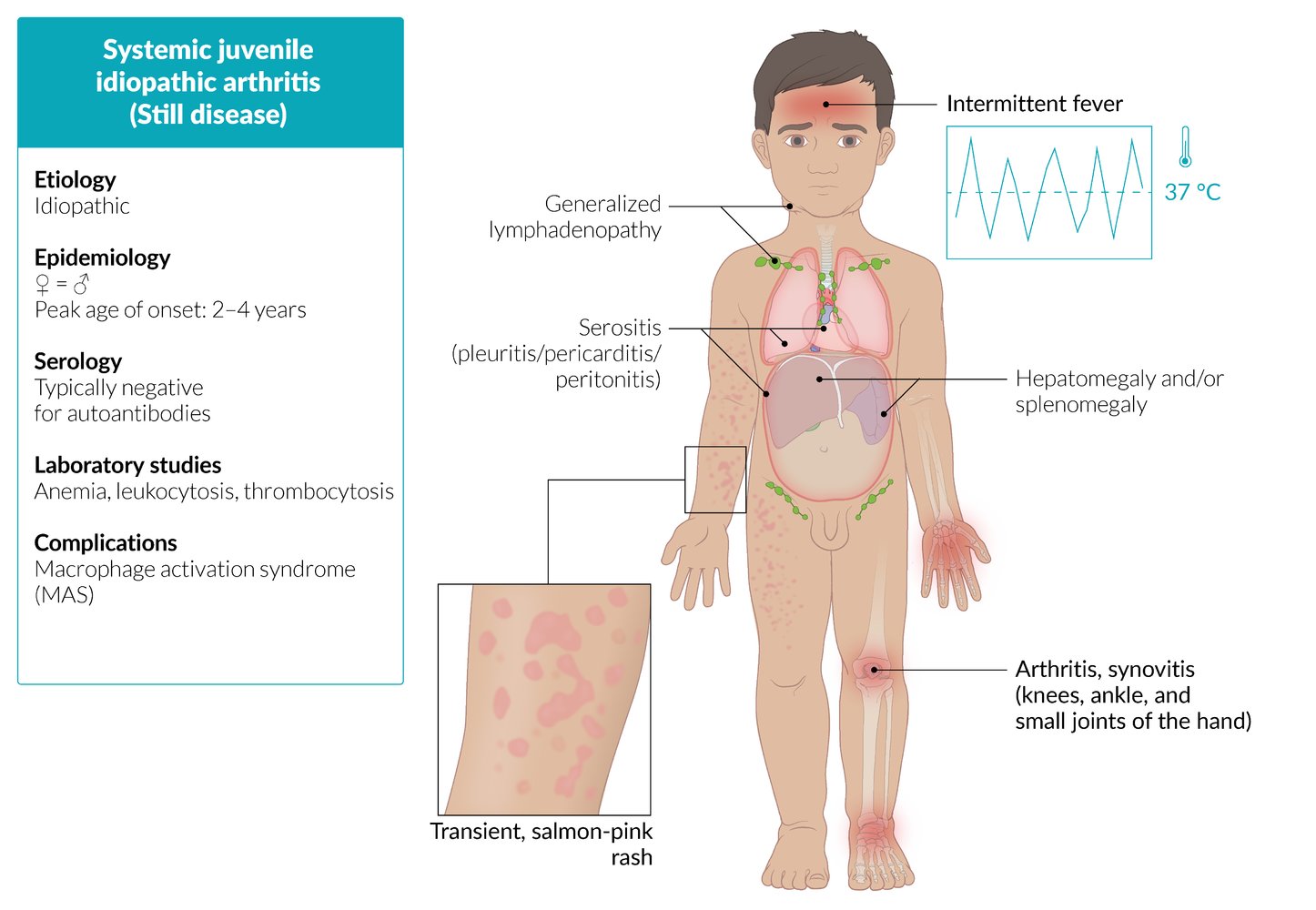
Juvenile Idiopathic Arthritis: Symptoms & Treatment
Juvenile idiopathic arthritis is the most common form of arthritis among children younger than 16.The symptoms of juvenile idiopathic arthritis include persistent joint pain, swelling, and stiffness. While some children experience symptoms for a few months only, others may have them for years.
Certain types of juvenile idiopathic arthritis can lead to serious complications such as eye inflammation, joint damage, and growth problems. The treatment focuses on pain management, inflammation control, improving function and preventing further damage.
Symptoms
These are the most frequent signs and symptoms associated with juvenile idiopathic arthritis:
- Pain. Although your child may not complain of pain in their joints, it is possible that they are limping — especially after a nap or first thing in the day.
- Swelling. It is quite common to experience joint swelling, but it is more noticeable in larger joints like the knee.
- Stiffness. It is possible that your child seems clumsier than usual, especially in the morning or after naps.
- Fever, swelling of the lymph nodes, and rash. Sometimes, high fever, swelling of the lymph nodes, or a rash around the trunk can occur. This is more common in the evenings.
One joint can be affected by juvenile idiopathic arthritis. There are many types of juvenile idiopathic artifiia, but the most common are systemic, polyarticular, and oligoarticular. The symptoms of your child’s condition, as well as the number and severity of any rashes or fevers, will determine which type they have.
As with other forms of arthritis like juvenile idiopathic, symptoms can flare up at times and disappear when they are less severe.
When should you see a doctor?
If your child has joint pain, swelling, stiffness or discomfort for more than one week, especially if they have a fever.
Causes
When the immune system of the body attacks its own cells or tissues, it is called juvenile idiopathic arthritis. Although it is not clear why this occurs, both environment and heredity seem to play a part.
Complications
Juvenile idiopathic arthritis can lead to serious complications. These complications can be prevented by being vigilant and seeking medical attention. Eye problems. Eye inflammation can occur in some cases. This condition can lead to blindness, glaucoma, and cataracts if it is not treated.
Eye inflammation can occur without any symptoms so it is important that children suffering from this condition are regularly examined by an eye doctor.
Growth problems. Growth problems can be caused by juvenile idiopathic arthritis. Growth can also be affected by some medications, such as corticosteroids.




